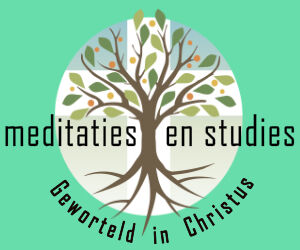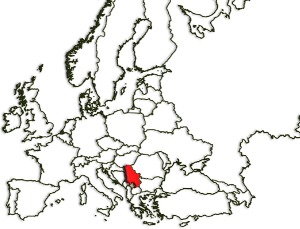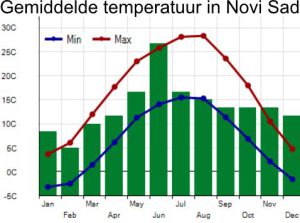Studie – Het nut van een belijdenisgeschrift

C.H. Spurgeon

Het nut van een belijdenisgeschrift
![]() met als bijlage Spurgeon’s Catechism
met als bijlage Spurgeon’s Catechism
Voorwoord
Eigenlijk al direct na het versturen van mijn (uitgebreide) email aan mijn uit Amerika afkomstige ‘collega-zendeling’ Steve N. (niet de werkelijke beginletter van de achternaam), kreeg ik al in gedachten:
Hé, dit is ook belangrijk voor anderen.
Wat? Het belang of nut van een belijdenisgeschrift, vooral als er zo’n prachtig document is als de ‘Baptisten-geloofsbelijdenis van 1689’ voor handen is, die C.H. Spurgeon niet voor niets weer in/voor het daglicht bracht.
Daar gaat het over in de onderstaande email-studie. Ik bedoel dan natuurlijk wel het nut van een degelijk Bijbels-gefundeerde geloofsbelijdenis zoals de ‘1689’ kan worden genoemd.
De Heere zegene de email-studie!
Novi Sad, 4 april 2024
Pier M. Meindertsma
Inleiding
- Als ik in het Voorwoord de Baptisten-geloofsbelijdenis van 1689 noem, dan gaat het voluit geschreven om de London Baptist Confession of Faith of 1689. Dikwijls wel kortweg genoemd: de ‘1689’. Tien jaar geleden verscheen een Nederlandse versie: De Baptistengeloofsbelijdenis van 1689 – met toelichting door Kees van Kralingen, Ede 2012.
- Terecht zegt Van Kralingen, pag. 6, dat het hier gaat om het belangrijkste belijdenisgeschrift van de Reformed Baptists (oftewel de Reformatorische baptisten). Heruitgegeven in 1855 door inderdaad Charles Haddon Spurgeon, die er ook een inleiding bij schreef. Zie Van Kralingen pag. 19.
In het zelfde jaar kwam ook uit Spurgeon’s Catechism, op de geloofsbelijdenis van 1689 gebaseerd (zie onder). - Misschien ter nuancering van de ‘1689’ ook nog maar een kleine kritische noot: in de ’1689’ wordt als kerkstructuur de congregationalistische (ja, een hele mond vol) aangehangen. Persoonlijk neig ik meer tot de kerkstructuur die beleden wordt in de Westminster confessie (de Engels reformatorische, puriteins georiënteerde, belijdenis, waar de ‘1689’ sterk tegen aan leunt), namelijk het presbyteriaans kerkconcept waar het bestuur (de leiding) van de plaatselijke gemeente door de raad van oudsten beter uit de verf komt. Dat lijkt volgens mij meer op het Bijbels patroon.
Een ander punt is: kun je, zoals de ‘1689’ doet, inderdaad zeggen dat de paus de antichrist is: d.i. de (nog in aantocht zijnde) antichrist? Dit zijn lastige zaken… Zie vv en vv. - Oké genoeg geanticipeerd op mijn in het Voorwoord genoemde email-studie die nu volgt – de inderdaad in het Engels geschreven, ‘authentieke’ brief (op een enkele kleine wijziging na), een week geleden verstuurd, d.i. Novi Sad, March 27, 2024.

DE EMAIL-BRIEF
(…)
Dear brother and, if I may say so: my friend, Steve,
- Do you remember our last contact, Thursday 21 march 2024? I mean talking about subject of ‘The 1689 Confession’ – in my opinion the best Baptist, better stated: Biblical founded, confession of faith. You were a little hesitating about confessions. Your wife was also sitting with us and it seemed that she was a little more acquainted to it…
- And I? I was most positive about it. I.e. if the confession-writing is really profound Biblical and that you read it as a foundational study about the basics of content of Scriptural revelation by God-triune and about God-triune and His goal with us as people creatures.
- So let me ‘influence’ (you see the upper commas 😊) you a bit in the favour, or in your American language: favor, of my view about confession-writing.
Ⅰ.
First I will lend (borrow) a few statements of others:
- C.H. Spurgeon says in his A Puritan Catechism – 1855 (a super catechism, see on Internet and in Attachment below):
‘I am persuaded that the use of a good Catechism in all our families will be a great safeguard against the increasing errors of the times, and therefore I have compiled this little manual from the Westminster Assembly’s and Baptist Catechisms, for the use of my own church and congregation. Those who use it in their families or classes must labour to explain the sense; but the words should be carefully learned by heart, for they will be understood better as years pass.
May the Lord bless my dear friends and their families evermore, is the prayer of their loving Pastor.
Study to shew thyself approved unto God, a workman that needeth not to be ashamed, rightly dividing the word of truth. 2 Tim. 2:15’ (PMM: King James Version, KJV). - I add a little side information (I hope correct) about this Catechism, see on internet under ‘Chapel Library; A ministry of Mount Zion Bible Church’:
‘The Baptist Catechism was written in 1693 by William Collins and Benjamin Keach for teaching the doctrines of the London Baptist Confession of 1689. By 1738, this catechism was adopted by the Philadelphia Association of Baptists in America, the spiritual parent of all Baptist churches in the USA. Spurgeon edited and reprinted it in 1855, shortening the expositions of the Ten Commandments and the Lord’s Prayer. Thus, the catechism you hold in your hand is in essence the one used by Baptists in English-speaking countries to train their families for the last 300 years!’
- I think especially this Catechism of Spurgeon would be really suitable for our young sister in the belief N.N. we were naming. She is now wrestling with her pravoslavan (Eastern orthodox) church background and needs profound and clear answers. This catechism can already answer many. What do you think?
I will put this catechism in attachment below. - In the a contemporary wording of the Baptist 1689 Confession with the title A Faith to Confess, The Baptist Confession of Faith of 1689 (Rewritten in modern English), 2010 (Ninth impression 2002), it says in the Introduction:
‘A Faith to Confess is designed to present a clear outline of Biblical truth to all interested persons. Since the Bible, the fully inspired Word of God, does not change from one age to another, the truths contained in the Confession, wholly based as they are upon Scripture, are as relevant today as when “the Elders and Brethren of many congregations of Christians, baptized upon profession of their Faith” stated them in 1677. (…) , ’
Ⅱ.
Some additional things will now follow ➤ from a former study I prepared: ‘Belijdenis(ge)schrift – belang’ (Confession-writing – importance), summer/fall 2015.
- What is a ‘confession-writing’, or confession of faith, or creed? A writing in which the church expresses/pronounces what it accepts as it’s common faith according to God’s Word. Or broader: in a confession of faith church association and congregations express what they have learned to understand from Scripture, under the guidance of the Holy Spirit, as the basic principles/foundations of the Christian faith.
- Confession formation starts already in Old Testament:
From vs 4 on you see in the first verse parts a call to praise God for His mighty deeds. As answer then the second verse part says: ‘For His mercy endures forever’. You could name this a certain confession-writing, that is a core-statement (also vs 1b: ‘for He is good). - And in New Testament:
:
Not the first (many different statements what people think who Jesus is), but the latter: ‘You are the Christ, the Son of the living God’, vs 16, which the Lord Jesus confirms. (somebody stated: the fallacy is pluriform, the truth is uniform).Further:➤ Believe and confess; cf. ➤ ‘Jesus is Lord’ ➤ Three salvation facts ➤ Christ’s humiliation and exaltation ➤ Three salvation facts. - But, what must be clear: Church is not based on confession, the apostle Paul says:
:
Church is based on the Word of God, of which God-triune, in particular the Lord Jesus Christ, is the core. But as God’s Word by the Holy Spirit is affecting us and we get a relation with Christ, we confess:
.
Ⅲ.
- Confession is a piece of systematic processing of what has been learned from God’s Word under the guidance of the Holy Spirit
* to confess and teach the truth of God within one’s own circle and to the outside world;
* to arm oneself against error (errancy, fallacy, delusion). - Matters in a confession must be about things that are really clear in Holy Scripture. And this leads us always back to what God revealed in it, especial to God-Triune Himself, pointed even more especial to the Second Person in the Trinity: the Lord Jesus Christ.
- Necessity:
- Not something of one person:
- Confession does not stand above or even beside H. Scripture, but it stands under it. It has what we call derivative authority. Scripture has authority in itself, confession echoes it and in that sense has authority.
Ⅳ.
Confession serves to
- give expression of the believe/faith of the congregation. To speak out what we believe:
- give public witness:
- indicate what is Biblical in contrast of errancies
- to express the unity of believers
- propagate the content of the believe and hand it over to offspring/next generation
Lastly
- Confession is a means against personal ‘liberty’ (unboundingness) and arbitrariness. Our believing and serving is seeking the God given outline that Scripture is teaching and what confession is expressing (cf. fish in the element of the water).
- So confession gives grip (hold, support) based on God’s Word.
- So practical conclusion: if you, my brother Steve, are a little convinced and have time: read Baptist confession ‘1689’, or maybe: Spurgeon’s Catechism. The latter is reading much easier in bed (while you are still recovering from you car-accident) and the quality is the same. And again: maybe an idea to use it and help further our young sister N.N…
(…)
ATTACHEMENT:
Catechism of Spurgeon
A PURITAN CATECHISM
With Proofs
Compiled by
C.H. Spurgeon
“Heir of the Puritans”
I am persuaded that the use of a good Catechism in all our families will be a great safeguard against the increasing errors of the times, and therefore I have compiled this little manual from the Westminster Assembly’s and Baptist Catechisms, for the use of my own church and congregation. Those who use it in their families or classes must labour to explain the sense; but the words should be carefully learned by heart, for they will be understood better as years pass. May the Lord bless my dear friends and their families evermore, is the prayer of their loving Pastor.
C. H. Spurgeon
________________________________________
Study to shew thyself approved unto God, a workman that needeth not to be ashamed, rightly dividing the word of truth. .
________________________________________
Published about Oct 14, 1855, when Spurgeon was 21 years old. On Oct. 14, Spurgeon preached Sermon No. 46 to several thousand who gathered to hear him at New Park Street Chapel. When the sermon was published it contained an announcement of this catechism. The text that morning was, “Lord, thou hast been our dwelling place in all generations.” .
Catechism of Spurgeon
Topic No. – Question – Answer
A: Man’s chief end is to glorify God,
#
and to enjoy him for ever.
#
A: The Word of God which is contained in the Scriptures of the Old and New Testaments
#
is the only rule to direct us how we may glorify God and enjoy him.
#
A: The Scriptures principally teach what man is to believe concerning God, and what duty God requires of man.
#
A: God is Spirit,
#
infinite,
#
eternal,
#
and unchangeable
#
in his being,
#
wisdom, power,
#
holiness,
#
justice, goodness and truth.
#
A: There is but one only,
#
the living and true God.
#
A: There are three persons in the Godhead, the Father, the Son, and the Holy Spirit, and these three are one God, the same in essence, equal in power and glory.
#
A: The decrees of God are his eternal purpose according to the counsel of his own will, whereby for his own glory he has foreordained whatever comes to pass.
#
A: God executes his decrees in the works of creation,
#
and providence.
#
A: The work of creation is God’s making all things
#
of nothing, by the Word of his power,
#
in six normal consecutive days,
#
and all very good.
#
A: God created man, male and female, after his own image,
#
in knowledge, righteousness, and holiness
#
with dominion over the creatures.
#
A: God’s works of providence are his most holy,
#
wise,
#
and powerful,
#
preserving and governing all his creatures, and all their actions.
#
A: When God had created man, he entered into a covenant of life with him, upon condition of perfect obedience;
#
forbidding him to eat of the tree of the knowledge of good and evil, upon pain of death.
#
A: Our first parents being left to the freedom of their own will, fell from the state wherein they were created, by sinning against God,
#
by eating the forbidden fruit.
#
A: Sin is any want of conformity to, or transgression of the law of God.
#
A: The covenant being made with Adam, not only for himself but for his posterity, all mankind descending from him by ordinary generation, sinned in him, and fell with him in his first transgression.
#
A: The fall brought mankind into a state of sin and misery.
#
A: The sinfulness of that state whereinto man fell, consists in the guilt of Adam’s first sin,
#
the want of original righteousness,
#
and the corruption of his whole nature, which is commonly called original sin,
#
together with all actual transgressions which proceed from it.
#
A: All mankind, by their fall, lost communion with God,
#
are under his wrath and curse,
#
and so made liable to all the miseries in this life, to death itself, and to the pains of hell for ever.
#
A: God having, out of his good pleasure from all eternity, elected some to everlasting life,
#
did enter into a covenant of grace to deliver them out of the state of sin and misery, and to bring them into a state of salvation by a Redeemer.
#
A: The only Redeemer of God’s elect is the Lord Jesus Christ,
#
who being the eternal Son of God, became man,
#
and so was and continues to be God and man, in two distinct natures and one person for ever.
#
A: Christ, the son of God, became man by taking to himself a true body,
#
and and a reasonable soul,
#
being conceived by the power of the Holy Spirit in the Virgin Mary, and born of her,
#
yet without sin.
#
A: Christ as our Redeemer executes the offices of a prophet,
#
of a priest,
#
and of a king,
#
both in his state of humiliation and exaltation.
A: Christ executes the office of a prophet, in revealing to us,
#
by his Word,
#
and Spirit,
#
the will of God for our salvation.
A: Christ executes the office of a priest, in his once offering up himself a sacrifice to satisfy divine justice,
#
and to reconcile us to God,
#
and in making continual intercession for us.
#
A: Christ executes the office of a king in subduing us to himself,
#
in ruling and defending us,
#
and in restraining and conquering all his and our enemies.
A: Christ’s humiliation consisted in his being born, and that in a low condition,
#
made under the law,
#
undergoing the miseries of this life,
#
the wrath of God,
#
and the cursed death of the cross;
#
in being buried, and continuing under the power of death for a time.
#
A: Christ’s exaltation consists in his rising again from the dead on the third day,
#
in ascending up into heaven, and sitting at the right hand of God the Father,
#
and in coming to judge the world at the last day.
#
A: We are made partakers of the redemption purchased by Christ, by the effectual application of it to us
#
by his Holy Spirit.
#
A: The Spirit applies to us the redemption purchased by Christ, by working faith in us,
#
and by it uniting us to Christ in our effectual calling.
#
A: Effectual calling is the work of God’s Spirit
#
whereby, convincing us of our sin and misery,
#
enlightening our minds in the knowledge of Christ,
#
and renewing our wills,
#
he does persuade and enable us to embrace Jesus Christ freely offered to us in the gospel.
#
A: They who are effectually called, do in this life partake of justification,
#
adoption,
#
sanctification, and the various benefits which in this life do either accompany, or flow from them.
#
A: Justification is an act of God’s free grace, wherein he pardons all our sins,
#
and accepts us as righteous in his sight
#
only for the righteousness of Christ imputed to us,
#
and received by faith alone.
#
A: Adoption is an act of God’s free grace,
#
whereby we are received into the number, and have a right to all the privileges of the sons of God.
#
A: Sanctification is the work of God’s Spirit,
#
whereby we are renewed in the whole man after the image of God,
#
and are enabled more and more to die to sin, and live to righteousness.
#
A: The benefits which in this life do accompany or flow from justification,
#
are assurance of God’s love, peace of conscience, joy in the Holy Spirit,
#
increase of grace, perseverance in it to the end.
#
A: The souls of believers are at their death made perfect in holiness,
#
and do immediately pass into glory,
#
and their bodies, being still united to Christ,
#
do rest in their graves
#
till the resurrection.
#
A: At the resurrection, believers being raised up in glory,
#
shall be openly acknowledged and acquitted in the day of judgment,
#
and made perfectly blessed both in soul and body in the full enjoying of God
#
to all eternity.
#
A: The souls of the wicked shall at their death be cast into the torments of hell,
#
and their bodies lie in their graves till the resurrection, and judgement of the great day.
#
A: At the day of judgment the bodies of the wicked being raised out of their graves, shall be sentenced, together with their souls, to unspeakable torments with the devil and his angels for ever.
#
A: The rule which God first revealed to man for his obedience, is the moral law,
#
which is summarised in the ten commandments.
A: The sum of the ten commandments is to love the Lord our God with all our heart, with all our soul, with all our strength, and with all our mind; and our neighbour as ourselves.
#
A: The first commandment is, “Thou shalt have no other gods before me.”
A: The first commandment requires us to know
#
and acknowledge God to be the only true God, and our God,
#
and to worship and glorify him accordingly.
#
A: The second commandment is, “Thou shalt not make unto thee any graven image, or any likeness of any thing that is in heaven above, or that is in the earth beneath, or that is in the water under the earth: Thou shalt not bow down thyself to them, nor serve them: for I the Lord thy God am a jealous God, visiting the iniquity of the fathers upon the children unto the third and fourth generation of them that hate me; and shewing mercy unto thousands of them that love me, and keep my commandments.”
A: The second commandment requires the receiving, observing,
#
and keeping pure and entire all such religious worship and ordinances as God has appointed in his Word.
#
A: The second commandment forbids the worshipping of God by images,
#
or any other way not appointed in his Word.
#
A: The third commandment is, “Thou shalt not take the name of the Lord thy God in vain; for the Lord will not hold him guiltless that takes his name in vain.”
A: The third commandment requires the holy and reverent use of God’s names,
#
titles, attributes,
#
ordinances,
#
Word,
#
and works.
#
A: The fourth commandment is, “Remember the Sabbath day, to keep it holy. Six days shalt thou labour, and do all thy work: but the seventh day is the Sabbath of the Lord thy God: in it thou shalt not do any work, thou, nor thy son, nor thy daughter, thy manservant, nor thy maidservant, nor they cattle, nor thy stranger that is within thy gates. For in six days the Lord made heaven and earth, the sea, and all that in them is, and rested the seventh day: wherefore the Lord blessed the Sabbath day and hallowed it.”
A: The fourth commandment requires the keeping holy to God such set times as he has appointed in his Word, expressly one whole day in seven, to be a holy Sabbath to himself.
#
A: The Sabbath is to be sanctified by a holy resting all that day, even from such worldly employments and recreations as are lawful on other days,
#
and spending the whole time in the public and private exercises of God’s worship,
#
except so much as is taken up in the works of necessity and mercy.
#
A: The fifth commandment is, “Honour thy father and thy mother: that thy days may be long upon the land which the Lord thy God giveth thee.”
A: The fifth commandment requires the preserving the honour, and performing the duties belonging to every one in their various positions and relationships as superiors,
#
inferiors,
#
or equals.
#
A: The reason annexed to the fifth commandment is, a promise of long life and prosperity — as far as it shall serve for God’s glory, and their own good — to all such as keep this commandment.
#
A: The sixth commandment is, “Thou shalt not kill.”
A: The sixth commandment forbids the taking away of our own life,
#
or the life of our neighbour unjustly,
#
or whatever tends to it.
#
A: The seventh commandment is, “Thou shalt not commit adultery.”
A: The seventh commandment forbids all unchaste thoughts,
#
words,
#
and actions.
#
A: The eighth commandment is, “Thou shalt not steal.”
A: The eighth commandment forbids whatever does or may unjustly hinder our own,
#
or our neighbour’s wealth, or outward estate.
#
A: The ninth commandment is, “Thou shalt not bear false witness against thy neighbour.”
A: The ninth commandment requires the maintaining and promoting of truth between man and man,
#
and of our own,
#
and our neighbour’s good name,
especially in witness-bearing.
#
A: The tenth commandment is, “Thou shalt not covet thy neighbour’s house; thou shalt not covet thy neighbour’s wife, nor his manservant, or his maidservant, nor his ox, nor his ass, nor anything that is thy neighbour’s.”
A: The tenth commandment forbids all discontentment with our own estate,
#
envying or grieving at the good of our neighbour,
#
and all inordinate emotions and affections to anything that is his.
#
A: No mere man, since the fall, is able in his life perfectly to keep the commandments of God,
#
but does daily break them in thought,
#
word,
#
and deed.
#
A: Some sins in themselves, and by reason of various aggravations, are more heinous in the sight of God than others.
A: Every sin deserves God’s wrath and curse, both in this life and that which is to come.
#
A: To escape the wrath and curse of God due to us for sin, we must believe in the Lord Jesus Christ,
#
trusting alone to his blood and righteousness. This faith is attended by repentance for the past
#
and leads to holiness in the future.
A: Faith in Jesus Christ is a saving grace,
#
whereby we receive,
#
and rest upon him alone for salvation,
#
as he is set forth in the gospel.
#
A: Repentance to life is a saving grace,
#
whereby a sinner, out of a true sense of his sins,
#
and apprehension of the mercy of God in Christ,
#
does with grief and hatred of his sin turn from it to God,
#
with full purpose to strive after new obedience.
#
A: The outward and ordinary means whereby the Holy Spirit communicates to us the benefits of Christ’s redemption, are the Word, by which souls are begotten to spiritual life; Baptism, the Lord’s Supper, Prayer, and Meditation, by all which believers are further edified in their most holy faith.
#
A: The Spirit of God makes the reading, but especially the preaching of the Word, an effectual means of convicting and converting sinners,
#
and of building them up in holiness and comfort,
#
through faith to salvation.
#
Topic 5973: Q: 73. How is the Word to be read and heard that it may become effectual to salvation?
A: That the Word may become effectual to salvation, we must attend to it with diligence,
#
preparation,
#
and prayer,
#
receive it with faith,
#
and love,
#
lay it up into our hearts,
#
and practise it in our lives.
#
A: Baptism and the Lord’s Supper become spiritually helpful, not from any virtue in them, or in him who does administer them,
#
but only by the blessing of Christ,
#
and the working of the Spirit in those who by faith receive them.
#
A: Baptism is an ordinance of the New Testament, instituted by Jesus Christ,
#
to be to the person baptised a sign of his fellowship with him, in his death, and burial, and resurrection,
#
of his being ingrafted into him,
#
of remission of sins,
#
and of his giving up himself to God through Jesus Christ, to live and walk in newness of life.
#
A: Baptism is to be administered to all those who actually profess repentance towards God,
#
and faith in our Lord Jesus Christ, and to none other.
A: The infants of such as are professing believers are not to be baptised, because there is neither command nor example in the Holy Scriptures for their baptism.
#
A: Baptism is rightly administered by immersion, or dipping the whole body of the person in water,
#
in the name of the Father, and of the Son, and of the Holy Spirit, according to Christ’s institution, and the practice of the apostles,
#
and not by sprinkling or pouring of water, or dipping some part of the body, after the tradition of men.
#
A: It is the duty of such as are rightly baptized, to give up themselves to some particular and orderly Church of Jesus Christ,
#
that they may walk in all the commandments and ordinances of the Lord blameless.
#
A: The Lord’s Supper is an ordinance of the New Testament, instituted by Jesus Christ; wherein, by giving and receiving bread and wine, according to his appointment, his death is shown forth,
#
and the worthy receivers are, not after a corporeal and carnal manner, but by faith, made partakers of his body and blood, with all his benefits, to their spiritual nourishment, and growth in grace.
#
A: It is required of them who would worthily partake of the Lord’s Supper, that they examine themselves of their knowledge to discern the Lord’s body,
#
of their faith to feed upon him,
#
of their repentance,
#
love,
#
and new obedience,
#
lest coming unworthily, they eat and drink judgment to themselves.
#
A: They plainly teach us that our Lord Jesus Christ will come a second time; which is the joy and hope of all believers.
# ,
Terug naar ‘Catechism of Spurgeon’


























